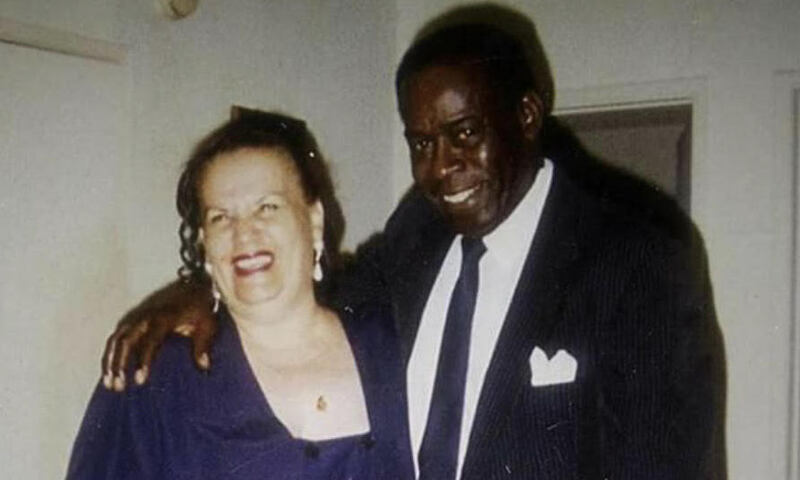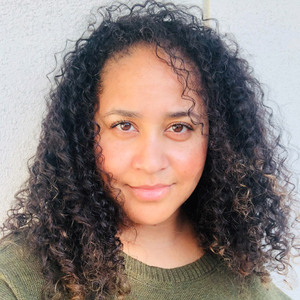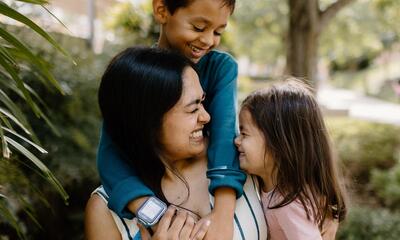The Power of Story: Turning Generational Trauma into Generational Healing

In this week's blog, Jennifer Jones reminds us of the power our stories have to facilitate empathy, understanding, and healing when talking about difficult topics.
Have you ever seen the 2011 movie, The Help, based on a book written by Kathryn Stockett? While I do not always love movies that depict such a traumatizing time in our history in a “feel-good” kind of way, and I know there is some aversion to a White woman writing about this period in our history, I do love that this movie demonstrates the power of story, which is why it is still one of my favorites.
If you haven’t seen this movie, here’s a snapshot: Based in Jackson, Mississippi, in 1963 during the Civil Rights Movement, an aspiring journalist decides to write a book from the point of view of the maids, then known as “the help.” She hopes to expose the racism they faced while working for White families.
I won’t spoil the movie, but the focus on relationship and story is strong, and it’s what I’d love for us all to focus on more in the current racial climate. We should remember what we are currently experiencing and witnessing is an extension of an unreconciled and unresolved history in the United States of America. I believe we can shift history through the power of storytelling, just as this movie beautifully illustrates.
One of the most painful parts of the story is when a maid is fired from a family for using their guest restroom—yes, the guest restroom. Throughout the movie, the mother neglects her young daughter, while the maid’s relationship with the young girl is highlighted as special. When the maid is fired, the young girl is devastated.
This is a real-life scenario, and it’s part of the story we tend to ignore. We tend to focus on adults raising children with racists ideals, but I challenge you to think of the children who were adversely impacted by this kind of abrupt and major separation and loss. Maybe those children were raised with Black maids they held dear. Maybe they were conflicted about what the adults in their lives were doing and saying. Maybe their hearts were broken at the sight of their beloved caretakers being mistreated, or maybe they noticed the difference in how the maids were treated compared to people that looked like them. Maybe they grew up to be that journalist in the movie who utilized her privilege and the power of story to actively engage in the fight against racism, someone willing to amplify Black voices. Maybe they are you, and I want you to know your story is significant.
For the purpose of this blog, I encourage you to think about the children. The Black children who never had the chance to bond with their mothers as they should have, and the White children who nursed and bonded with their Black maids who they saw treated as less than as they grew into an understanding of relationships. Would Black mothers and children and the Black family ever recover from such disconnection? Would White children succumb to the plague of racism, or would they be scarred by the cruelty inflicted on people they grew to love?
Talk about generational trauma. Where does all this trauma go when we cannot, or choose not to tell our stories? It affects us all.
We must find the stories that connect us as much as we find the stories that show us the nature of our sinful hearts. There has to be a safe space for White people to tell their stories, too. The hard to hear, heartbreaking ones.
I launched The Shush Your Shame Podcast this year to provide a safe space for women to share their stories of overcoming shame, and on Episode 003 a friend of mine sat down with me virtually to share her journey of becoming anti-racist. She was open and honest in a challenging and refreshing way. One thing she said that continues to stick with me is that when it came to race and racism when she was growing up, it wasn’t so much what was said, but that it wasn’t talked about. Still, something in her was curious and sought out connection, even in her discomfort around race and having grown up in predominantly White spaces her entire life.
My own mom has shared about their Black maid growing up. Her name was Carlela, and my mom adored her. When she grew up, my mom married a white man initially to appease her family but was divorced soon after. She married my Black father despite her family disowning her. Carlela is pictured in the photo album of my mom’s first marriage. Her maid was considered good enough to care for her and keep her family’s home, but a Black man was not good enough for her to love. I’m so glad my mom chose love.
What stories are you holding on to that could unlock generations of healing?
Much like we do in therapy, we discover telling our stories out loud in a safe space helps us become more connected with ourselves and others. For me, when I hear stories, especially when they are difficult to hear my heart is moved toward that person.
So, the next time a conversation about race is on the table, look at it as an opportunity to connect. This is where I actually encourage you to go with the feeling(s) — not to forgo the facts, but to create a bridge of connection to our humanity. Ask yourself:
Am I hearing this person’s heart? What is their heart saying?
What about this story can connect us? Which part connects my heart to theirs?
Am I listening to understand, or am I listening just to hear and respond? Hint: Listen to understand.
If my heart is not moved toward this person, what is causing the blockage? What part of my story, or wound, is being poked at?
If a wound is being prodded, decide not to respond in that moment. Simply listen and validate. You may say in a warm tone, “I hear you,” or, “I hear you. Something is coming up for me, but I can’t quite put it into words yet. Can we revisit this after I have some time to think?”
Find a safe space to begin doing your own work and telling your own story. You may do that through journaling, in therapy, or with other friends who have vowed to become anti-racist, etc.
I will leave you with this Brené Brown quote:
Owning our story can be hard but not nearly as difficult as spending our lives running from it. Embracing our vulnerabilities is risky but not nearly as dangerous as giving up on love and belonging and joy—the experiences that make us the most vulnerable. Only when we are brave enough to explore the darkness will we discover the infinite power of our light.
Without story, we lack the connection for which God created us. Imagine: God left us the Bible, a collection of stories, to connect us to Him and His love for humanity, to help us reconcile ourselves to His majesty and spend eternity with Him. Likewise, our stories connect us and reconcile us to one another now! When we think of it this way, becoming anti-racist is not optional. It’s a choice to connect, to turn generational trauma into generational healing. It’s Kingdom work.




